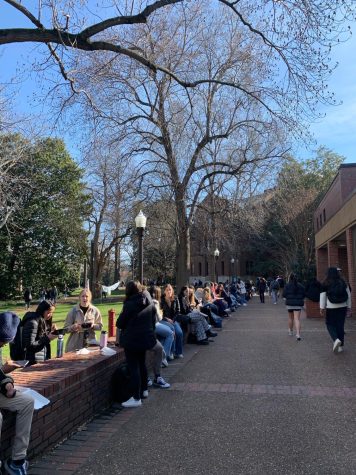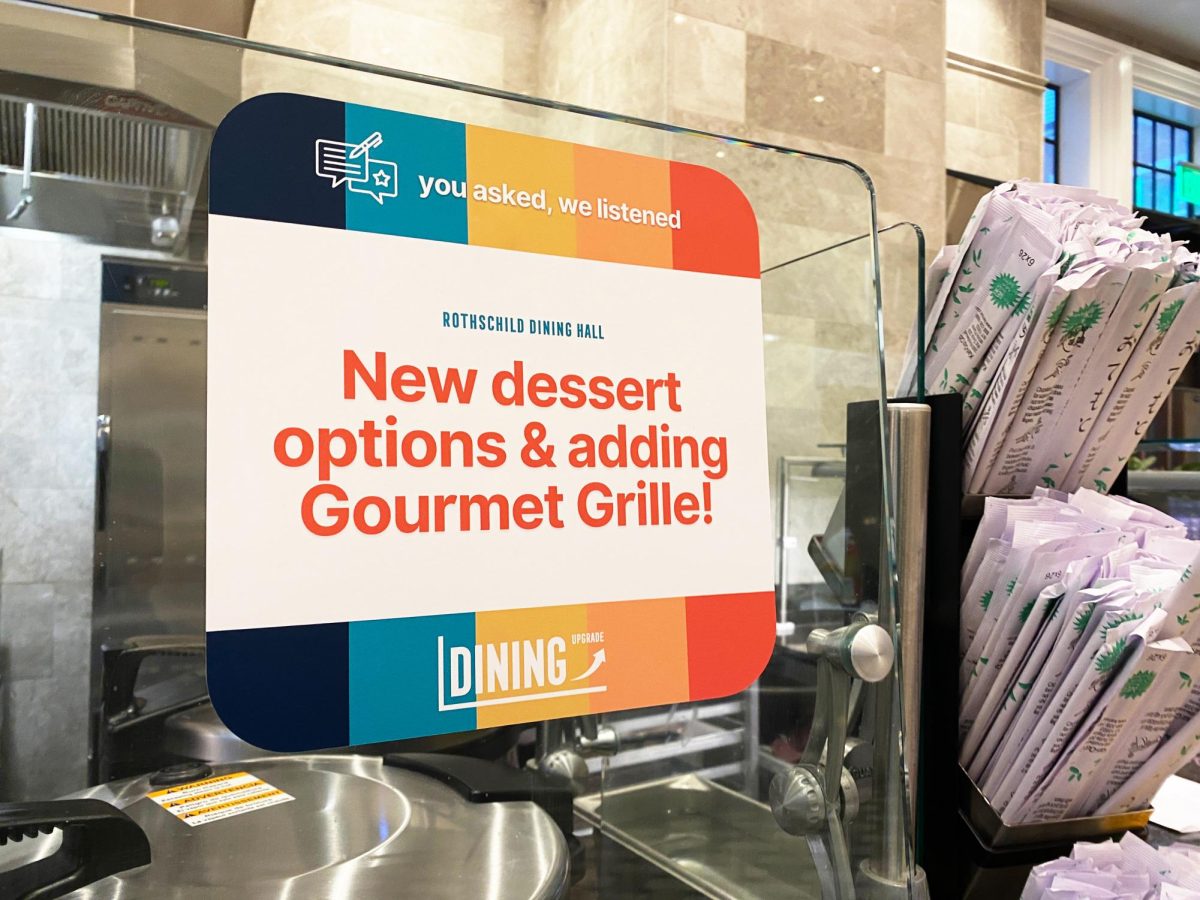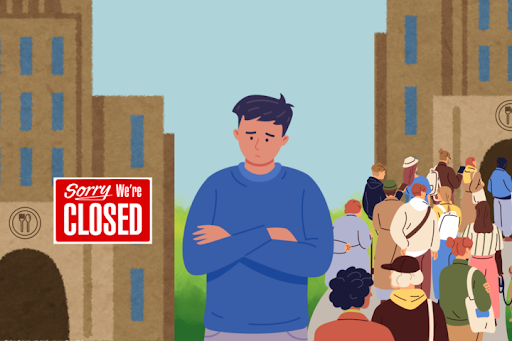Students and Campus Dining staff reacted to the effects the Commodores Care period had on Campus Dining, citing concerns about dining wait times, outdoor seating and COVID-19 safety. During Commodores Care, which ends on Jan. 24, all indoor seating in dining halls and study spaces were closed.
Other scheduling changes for the Spring 2022 semester include a passing period shortened by five minutes and a set lunch period on Tuesdays and Thursdays from 12:15-1:15 p.m. CST. Junior Andrew Noonan said these factors are also contributing to long lines and crowds during peak lunch times.
“Lines are a little ridiculous right after class. Rand is usually out the doors after my afternoon classes,” Noonan said. “Usually I have to wait a little bit or go back later off hours.”
In a Jan. 21 email, Vice Provost G.L. Black reminded students of expanded dining hours and encouraged students to dine at “less-crowded times” to reduce lines and wait times. He also listed new menu additions including bowls and smoothies at Rand, crafted flatbreads and pierogi bowls at Commons, an omelet bar at E. Bronson Ingram and a bubble tea and sushi meal plan combo at the Highland Munchie Mart.
Some Vanderbilt Campus Dining staff expressed concern with the crowds and dissatisfaction with the university’s response to COVID-19 amid surging cases and the omicron variant.
“[Vanderbilt] closed the dining areas, so COVID-19 won’t spread, but it doesn’t mean anything because they still pack the cafeteria,” Rand chef Jennifer McCauley said.
Several students criticized the lack of indoor seating amid below-freezing temperatures. The week of Jan. 17 was characterized by temperatures under 30 degrees and snow.
Due to the lack of indoor seating, Noonan said that many students took their food to eat inside their dorms with their friends. Others ate in academic buildings or indoors while standing up or by moving chairs to sit down and eat. All of these remedies were technically not permitted during the Commodores Care period.
“It’s been very cold out, so it’s been hard for people to eat outside,” Noonan said.
Rand chef Latoria Cartmell added that several of her colleagues have recently quit their jobs due to health concerns and fears of catching COVID-19 at work. She said such health concerns were exacerbated by students disregarding Commodores Care rules and the university failing to enforce these restrictions. Campus Dining did not immediately respond to The Hustler’s request for comment regarding employees leaving their positions.

“They asked people [students] to put on masks and they refused,” Cartmell said. “[Vanderbilt is] just putting up signs, but, other than that, nothing. They’re not enforcing anything.”
First-year Morrigan Dunlap-Loomis stated that outdoor dining was also not a COVID-19-safe alternative to indoor dining because students were huddling together to eat in spaces with limited seating availability.
“I saw crowds of students in very close proximity with each other around the few benches and tables outside Rand,” Dunlap-Loomis said. “It seemed to contradict the very purpose of the Commodores Care period.”
Students additionally emphasized the inconvenience and/or inability to return to their dorms to eat to-go food, especially between classes.
“I live on Commons, so I cannot take my lunch from Rand back to my dorm in between classes on main campus,” first-year Pedro Rosales-Diaz said. “I have to choose between eating in freezing temperatures on ice-coated benches or not eating at all.”
First-year Aashi Gurijala said that the shortened passing period has made it difficult to eat between classes.
“I don’t have a lunch break on Monday, Wednesday or Friday. I literally have to get breakfast at Commons and save half of it for lunch,” Gurijala said. “Sometimes my classes run a bit over, so I only get seven to 10 minutes to actually eat.”
McCauley explained what could be done to help dining workers feel safe in their workplaces.
“As long as everybody has their masks on and they cut down the number of people that should be in the cafeteria, then it would be good,” McCauley said. “But, as long as all those people are in here, COVID-19 can spread easily.”
Many dining workers are apprehensive about the approaching return of indoor dining after the end of Commodores Care on Jan. 24, saying that they think it is too early to make this change. Commons was open for indoor dining on Jan. 22-23, despite Commodores Care restrictions still being in effect. The Kitchen at Kissam also permitted indoor seating on Jan. 23.
“I was surprised to see everyone eating in the dining area, and all the signs had been taken down,” first-year Lavanya Dhavala said. “Overall, it doesn’t seem like Commodores Care was enforced in any way—people still studied in common rooms and a few people haven’t even gotten their required return-to-campus COVID-19 test.”















